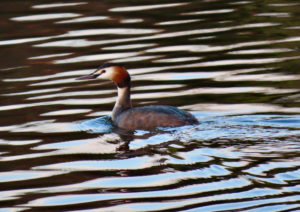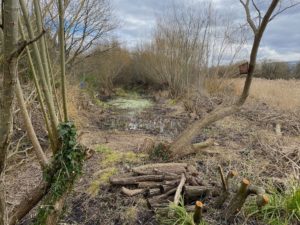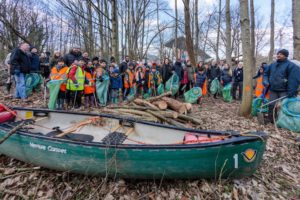As he is put in a position of vulnerability, Ben Watt finds his feelings about the fragility of Brent Reservoir (Welsh Harp) sharpened.

It is over thirty years since I was dramatically hospitalised with a rare auto-immune disease. I lost the majority of my small intestine to surgery, nearly died more than once, and came out after nine weeks to a new changed life. I detailed the story in a book called Patient, published in 1996. The aftershocks have stayed with me since, and while remaining unbowed and industrious I have had to accept less predictable health.
And so it was at the end of February. The reservoir took a back seat as I navigated ten days in and out of hospital in a familiar mini-drama of pain, diagnosis, solution, complication and resolution. Yet when I was finally up on my feet again, it was the reservoir I chose as my first trip back into the open air.
It was the last Sunday of the month. I know the place inside out, yet it felt oddly new after two weeks starved of the outdoors and exercise. The verges were greener. The sunlight sparkled on the surface, catching the rich chestnut crowns of the pochards huddled under the trees by the old jetty. It won’t be long before the spring migration, and the arrival of reed warblers and common terns.
Down by the main hide, the newly-revived Welsh Harp Conservation Group has opened up fifty metres of the old east marsh canal, sawing down self-seeded willows on both banks. The excitement when two mallards and a moorhen actually then checked out the result was as if a rare wader had landed. No birds have been seen in there for years.

Up at the other end of the reservoir, the Friends of the Welsh Harp were running their monthly conservation day. The focus was the channel of the Silk Stream just upsteam of the protected north marsh. All of us have badgered the Environment Agency and Canal and River Trust to deal with the huge flotilla of plastics, debris and polystrene trapped by two fallen trees across the water, but in the absence of any action, frustrated volunteers have finally stepped in.
Helped by some sharp social media promotion and a retweet from Feargal Sharkey, the turnout was impressive. Even the local cub scout group came down. Yet while three tonnes of rubbish was lifted from the woodland and flood plain, the deeper task in hand soon proved immense. Close up, the breakdown of the debris in the river channel was the most shocking. A thick floating pie-crust of polystyrene nurdles and degraded builders’ offcuts sat below the topping of plastic bottles and punctured footballs that have bypassed the nearby trash screen.
There is a school of thought — even among green guardians like Natural England and Canal and River Trust — that volunteers only engage in activity like this because they find the rubbish ‘unsightly’ or offensive to some overly-precious sensibility, and that plastic in the environment is actually ok and in a lot of cases not doing much real harm. Seeing this beaded soup of microplastics and pellets brings the reality home — the slow release of forever-chemicals; the infiltration into the food chain; the journey it will eventually take to the oceans, and its embedding into marine life, and us. This is about more than just removing a tyre from a riverbank, or a crisp packet from a hedgerow. We know now that global plastic waste will double by 2050. We need a paradigm shift in how we deal with it.

The wait for the publication of the Brent Reservoir owners’ vision for the future goes on, but frustration is growing in the ranks of campaigners, and perhaps the event at the Silk Stream brought it to a head. The water quality remains poor around the marshes. The toxic silt slowly accretes. The plastics and oils still get past the trash screens. A local grey heron was photographed this month, its beak locked shut by a tangle of red nylon webbing, and no one could catch it to do anything about it.
I veer from optimism about the place to a nagging negativity brought on by the sheer scale of the environmental crisis in general. Act local, I tell myself. Do what you can.
My own vulnerability was exposed again this month. I got through, but maybe it has sharpened my feelings about the fragility of the reservoir and the rest. In the meantime we need to source some shingle and try and get a canoe out to the dilapidated nesting rafts to give the terns a chance of breeding successfully this year.
*
Ben Watt is a musician and writer, best known as one half of Everything But The Girl. His memoir ‘Romany and Tom’, about his parents, was nominated for the Samuel Johnson (Baillie Gifford) Prize. He runs Buzzin’ Fly Records, and in 2021 founded environmental pressure group Cool Oak.